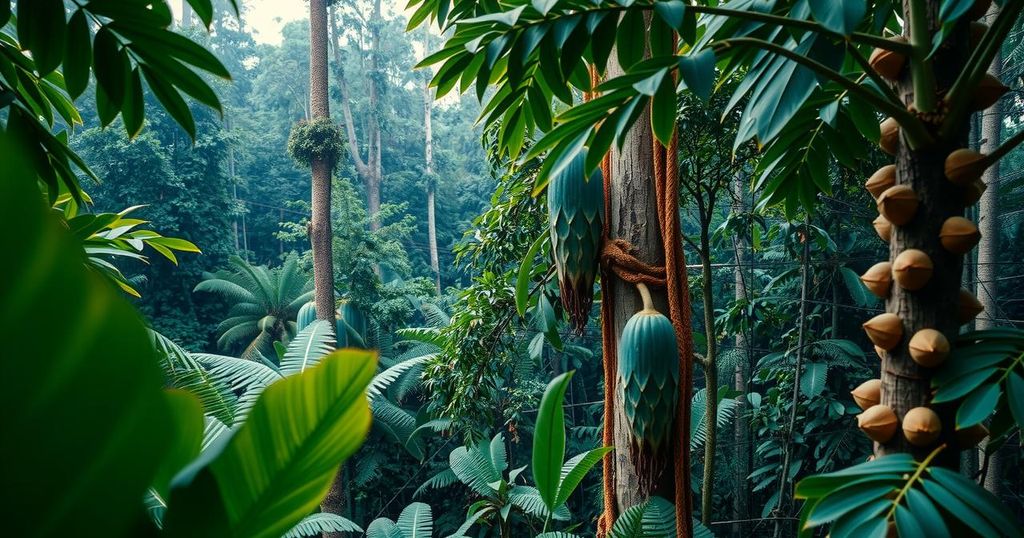A modelling study forecasts that as much as 94% of land in the Amazon may no longer be suitable for the Brazil nut tree by 2100 due to climate change. This research includes various climate scenarios and highlights the necessity of climate action to safeguard this vital species and its ecological and economic roles.
A recent modelling study predicts that up to 94% of the Amazon rainforest may become unsuitable for the Brazil nut tree by the year 2100 due to climate change. This study examines four distinct climate scenarios, emphasizing the potential consequences of global warming on this essential species. The Brazil nut tree is crucial not only for local ecosystems but also for the economies that depend on its nuts. The findings underscore the urgency of addressing climate change to protect both the species and its habitats.
The Brazil nut tree, known for producing valuable seeds, is a keystone species in the Amazon rainforest ecosystem. Its success relies heavily on specific climatic conditions, which are increasingly threatened by global climate change. The research conducted examined multiple climate scenarios to assess future sustainability for the tree, which interacts intricately with both its environment and local human communities that harvest its nuts. Understanding these dynamics is crucial for mitigating the impacts of climate change.
The implications of the modelling study are significant, suggesting that without concerted action against climate change, the future of the Brazil nut tree in the Amazon is at severe risk. The potential loss of this species could impact biodiversity and local economies that rely on its production. Therefore, it is critical to prioritize environmental conservation and climate action to ensure the survival of this iconic tree and the larger Amazon ecosystem.
Original Source: www.eurekalert.org







